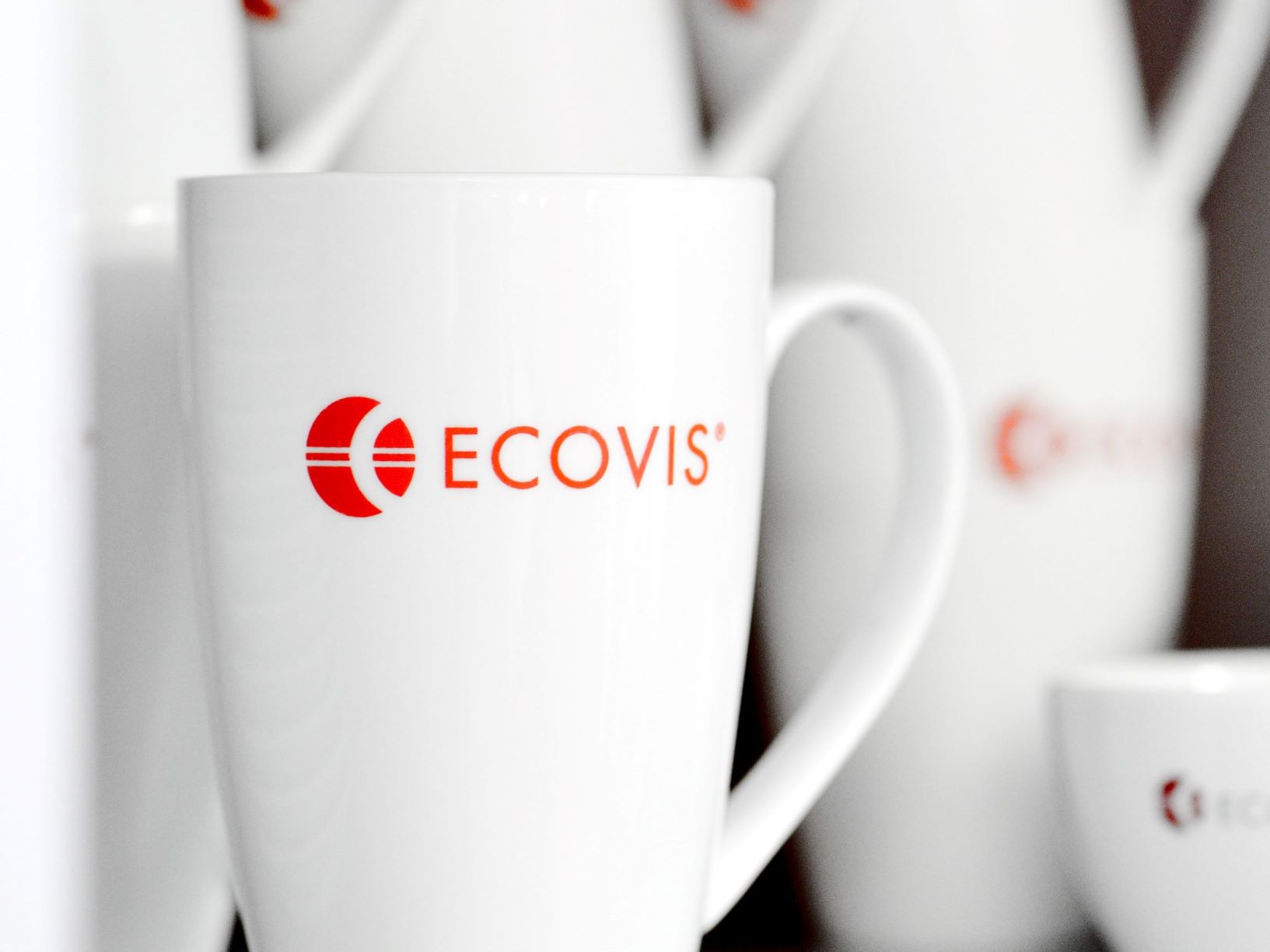Sanctions for not entering data in the register of beneficial owners in Czech Republic
The Czech Act No. 37/2021 Coll. on the registration of beneficial owners reflected the requirements brought by the so-called 5 AML Directive of the European Parliament and the Council of the EU into the Czech legislation and simplified the registration of the beneficial owner. All the changes it introduced into the Czech legal system were addressed in our previous article. The main impact on entrepreneurs are new sanctions corporations face in cases of unregistered resp. incorrect entry of data in the register of beneficial owners and related ambiguities regarding possible practical problems that may arise for business corporations.
Offenses in the Czech Republic
An important change in the Act on the Registration of Beneficial Owners is the introduction of sanctions for breaches of certain obligations stipulated by the Act on the Registration of Beneficial Owners. So far, the law has not provided for any direct sanctions for failure to register, but business corporations now face a number of sanctions for missing or incorrect registration of the beneficial owner, which raises several issues and involves practical problems for running of business corporations.
Pursuant to § 55 of the Czech Act on the Registration of Beneficial Owners, the following is newly an offense:
(i) breach of the obligation to register the beneficial owner, not even within a reasonable time set by the court; or
(ii) failure to ensure the entry of new data, not even within 15 days of the court's decision on the irregularity of the entry having become final, if the court deleted the incorrect data without compensation; or
(iii) failure to provide the necessary co-operation to the registrant, if the breach has been confirmed by a court, and the offense may be committed not only by the beneficial owner, the ultimate beneficiary, the ultimate influencer and the person through whom the ultimate beneficiary or ultimate influencer may benefit.
The act further stipulates a limitation period of 1 year for an offense under letter (ii), i.e. failure to ensure the entry of new data within 15 days from the legal force of the court's resolution on the irregularity of the registration, if the court deleted the incorrect data without compensation. The act further states that the registrant is not liable for such an offense if:
(i) at least 2 years have elapsed from the day following the day on which the irregularity occurred, which is stated in the decision pursuant to § 48, until the day on which the court initiated proceedings on this irregularity, or
(ii) the beneficial owner, the ultimate beneficiary, the ultimate influencer and the person through whom the ultimate beneficiary may benefit or exercise their influence have not provided the necessary cooperation to the registrant in violation of § 10 and the court has confirmed this breach under § 48 (3).
Fine for not entering data in the Czech register of beneficial owners
The first type of sanction commercial corporations face for the above-mentioned offenses is the imposition of a fine pursuant to § 55 (3) of the Act on the Registration of Beneficial Owners. A fine may be imposed up to CZK 500,000 in offense proceedings, however, the act does not stipulate a lower limit of the fine. The amount of any fine depends on the discretion of the administrative body. The fine will be received primarily by the legal entity that did not register, however, if the beneficial owner does not provide necessary cooperation, it is possible to impose a fine of the same amount on the beneficial owner.
Pursuant to § 57 of the Act on the Registration of Beneficial Owners, offenses are dealt with by the municipal authority of the municipality with extended powers in whose territorial district the suspect of the offense has their registered office or residence. If the suspect of an offense has a residence or registered office outside the territory of the Czech Republic, the competent municipal authority of the municipality with extended powers is the one in the administrative district of the court which, by a resolution, calls upon the registrant to eliminate the discrepancies in the registration according to § 48.
Prohibition of profit sharing and liability of the statutory body of Czech companies
Another type of sanction that a business corporation is liable in the event of committing offenses under the Act on the Registration of Beneficial Owners is a ban on the payment of a share in profits. According to § 53 of the Act on the Register of Beneficial Owners, “If the beneficial owner of a business corporation is not registered in the register of beneficial owners, this business corporation shall not pay them a share of the benefit (in addition to the profit, this also includes, for example, the share of the liquidation balance in the event of dissolution of a business corporation without a legal successor), nor to a legal person or legal arrangement of which they also happen to be the beneficial owner.”. Moreover, business corporations shall not, pursuant to § 53 (2) of the Act on the Registration of Beneficial Owners, pay a share in the benefit of such a legal entity or legal arrangement that has no beneficial owner registered in the register of beneficial owners (this would be a situation where a shareholder of a business corporation is a legal entity that does not have a registered beneficial owner in its register).
The right to a share in the profit or other own resources which has not been paid out due to the aforementioned reasons by the end of the accounting period in which it was decided to pay it out, expires. From the above stated information it can be concluded that it is the responsibility of the statutory body of a business corporation to supervise whether the business corporation has duly registered owners and also whether this obligation is also fulfilled by the shareholder (legal person) to whom the profit share will be paid. It should be noted here that in the case of a decision on the payment of profits by a statutory body despite the failure to meet the above conditions, the statutory body is liable under § 34 para. 3 of Act 90/2012 Coll., the Act on Companies and Cooperatives (hereinafter the “ACC”) for the damage caused: “Decisions to pay a profit share are made by the statutory body.. Where the profit and the profit shares are distributed in violation of this Act, the profit shares shall not be paid out. The members of the statutory body, who agreed to the payment of the profit share in violation of this Act, shall be deemed to not have acted with due care.“.
The Czech Act on the Registration of Beneficial Owners does not specifically regulate the situation where a partner is a foreign legal entity which, according to the legal system under which it was established, is not obliged to register the beneficial owner, and a share in the benefit of such legal entity is paid.
Prohibition of the exercise of voting rights at the General Meeting of Czech companies
The Czech Act on the Registration of Beneficial Owners also introduces a sanction in the form of suspension of the exercise of voting rights. Pursuant to § 54 of the Act on the Register of Beneficial Owners, “If the beneficial owner of a business corporation is not registered in the register of beneficial owners, they shall not exercise voting rights or make decisions as its sole shareholder, a legal entity or the one who acts on behalf of legal arrangements of which they are also the beneficial owner '. Such a sanction, especially in a situation where a business corporation has a sole shareholder, or the shareholder has a majority of the voting rights required to make a decision, may paralyze a business corporation that, as a consequence, is unable to make fundamental decisions in its operations, such as the appointment of an executive or a decision on the payment of profits.
Invalidity of the General Meeting of Czech companies and its correction
If, despite the legal prohibition, the sole shareholder when exercising the powers of the general meeting decides, the invalidity of this decision may be invoked under the rules on the invalidity of the decision of the sole shareholder deciding within the competence of the highest body under the ACC. Invalidity can therefore be invoked pursuant to § 191 of the ACC within a subjective period of 3 months and an objective period of 1 year from the adoption of the decision of the General Meeting. In order to be able to submit such a proposal, it is necessary to be an actively legitimized entity, which is exhaustively listed in the ACC (shareholder, executive, liquidator, member of the supervisory board). Furthermore, it is important to note that the invalidity of a resolution of the General Meeting cannot be invoked by a shareholder if a reasoned protest has not been filed against the resolution of the General Meeting, unless the petitioner has lodged a protest for a serious reason. Until the court declares the resolution of the General Meeting invalid, the regime of presumption of validity shall apply and shall be deemed valid.
Sanctions resulting from the new § 44a of the Czech Anti-Money Laundering Act
Another type of a new sanction related to the registration of beneficial owners are new fines resulting from the new § 44a of Act No. 253/2008 Coll., on certain measures against money laundering and terrorist financing, in the event of non - compliance with correction of irregularities in the register of beneficial owners which may be imposed on liable persons. It should now be possible to impose a fine of up to CZK 100,000 on a liable person for non-compliance with the obligation to notify the client of an irregularity pursuant to § 15a para. 1, resp. CZK 1,000,000 (if such a conduct made it impossible or difficult to secure or withdraw the proceeds of crime or enabled the financing of terrorism) for breach of the obligation to act in accordance with the Financial Analytical Office instruction pursuant to § 15a paragraph 4 of the above mentioned AML Act.
Liability of the statutory body of Czech company
Finally, it can be added that the statutory body of a business corporation is liable for the offense under the Act on the Registration of Beneficial Owners, which may result in a fine for a business corporation or other negative impact in the form of a ban on profit payments or a ban on exercising voting rights. The statutory body, as the executive body of a Czech company, has a wide internal and external competence, which includes primarily decisions on business management and general representatives authorized to act on behalf of the corporation in all matters.
From the day of acceptance of the position according to §159 of Act 89/2012 Coll. Civil Code (hereinafter the “Czech Civil Code”), a member of the statutory body of a Czech business corporation must act with due care. “A person who accepts the office of a member of an elected body undertakes to discharge the office with the necessary loyalty as well as with the necessary knowledge and care. A person who is unable to act with due managerial care although he must have become aware thereof upon accepting or in the discharge of the office and fails to draw conclusions for himself is presumed to act with negligence.“.The due care can therefore be defined as the obligation to perform the function of an elected body with the necessary loyalty, knowledge and diligence. According to § 51 para. 1 ACC, the individual actions of a member of an elected body must be assessed objectively, i.e. as another reasonably diligent person would act in a given situation: „A person shall be deemed to act with due care and the necessary knowledge where, in business-related decisions, he or she could in good faith and reasonably assume to be acting on an informed basis and in justifiable interest of the business corporation.“
However, a member of an elected body is not liable for all, whether positive or negative, results of their activities, but only for the proper performance of their work. Therefore, a member of the statutory body does not bear the company's business risk for negative consequences if they act with due diligence. This view is also reflected by the Czech Supreme Court, for instance, in the judgement file No. 29 Cdo 5036/2015: “In order to assess whether the decisions taken by the executive of a limited liability company in the performance of their duties were made in accordance with the due diligence requirement, it is irrelevant to what consequences such decisions led (however negative they may be for the company). Even if the expected result of the executive's activities did not appear, it would not be possible to conclude from this that the executive acted unlawfully. Only if it is established that the executive of a limited liability company has not made an effort consistent with the aspects of due diligence, can it be considered whether they are obliged to compensate the company for the damage caused as a result of such conduct.”
Therefore, in order for a member of a statutory body not to be liable for damage suffered by a business corporation, they must prove that they have acted in an informed and defensible interest of the business corporation. If they are not able to bear this burden of proof, they bear the consequences of the breach of duty. They are primarily obliged to compensate the company's damage according to Section 2913 of the Czech Civil Code, as it is a contractual relationship between a member of the elected body and a business corporation. In the event that a member of the elected body does not compensate the business corporation for the damage caused, they become a guarantor for the company's debts in the amount equal to the damage not compensated by them according to Section 159 para. 3 of the Czech Civil Code.
In conclusion, it may be said that the statutory body of the company is liable for any violation of the Czech Act on the Registration of Beneficial Owners, as this obligation falls within its competence and any failure to fulfil the obligation can be considered negligence under Section 159 Czech Civil Code. In the event that a fine is imposed on a business corporation or damage occurs on the basis of a prohibition of the exercise of voting rights, the business corporation shall have a recourse against a member of the statutory body.
For more information, contact us at:
JUDr. Mojmír Ježek, Ph.D.
ECOVIS ježek, advokátní kancelář s.r.o.
Betlémské nám. 6
110 00 Praha 1
e-mail: mojmir.jezek@ecovislegal.cz
www.ecovislegal.cz
About ECOVIS ježek advokátní kancelář s.r.o.
The Czech law office in Prague ECOVIS ježek practices mainly in the area of Czech commercial law, Czech real estate law, representation at Czech courts, administrative bodies and arbitration courts, as well as Czech finance and banking law, and provides full-fledged advice in all areas, making it a suitable alternative for clients of international law offices. The international dimension of the Czech legal services provided is ensured through past experience and through co-operation with leading legal offices in most European countries, the US, and other jurisdictions. The Czech lawyers of the ECOVIS ježek team have many years of experience from leading international law offices and tax companies, in providing legal advice to multinational corporations, large Czech companies, but also to medium-sized companies and individual clients. For more information, go to www.ecovislegal.cz/en.
The information contained on this website is a legal advertisement. Do not consider anything on this website as legal advice and nothing on this website is an advocate-client relationship. Before discussing anything about what you read on these pages, arrange a legal consultation with us. Past results are not a guarantee of future results, and previous results do not indicate or predict future results. Each case is different and must be judged according to its own circumstances.














